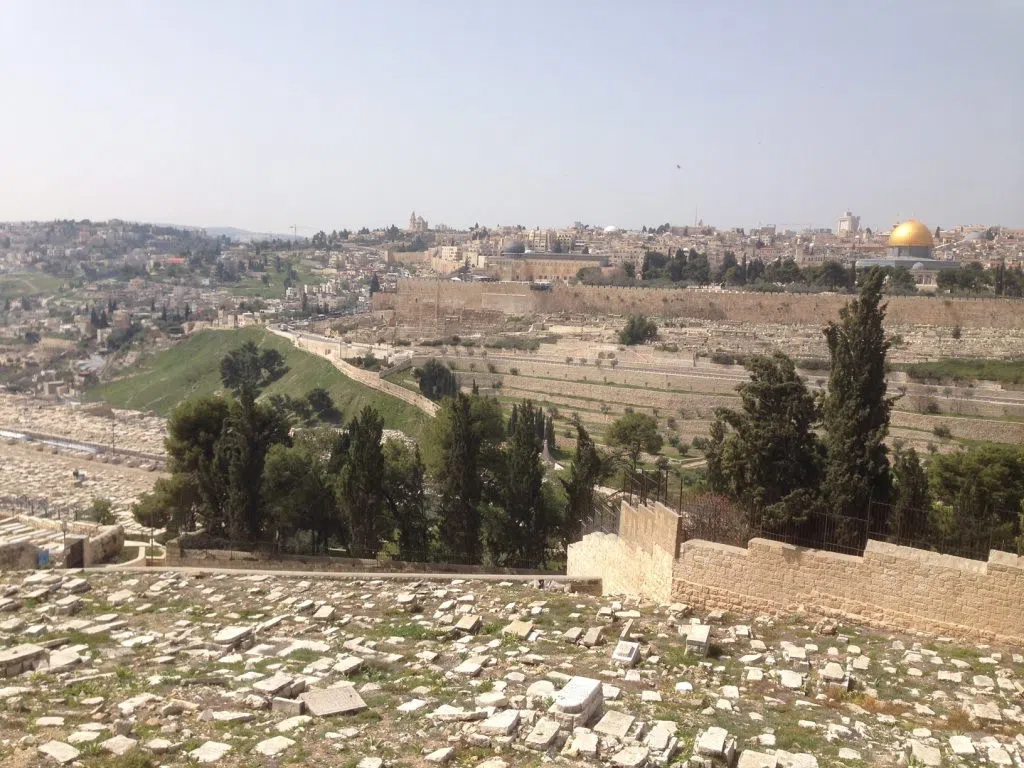
Description: View from Mount of Olives (PC: Ty McFarland)
“When they had sung a hymn, they went out to the Mount of Olives…They went to a place called Gethsemane” Mark 14:26, 32
Jesus had many “mountain top experiences” in his earthly ministry. No doubt his baptism would be one, raising his friend Lazarus from the dead would surely qualify, definitely the literal “high mountain” where the transfiguration took place. The Garden of Gethsemane on the Mount of Olives however, was anything but a “mountain top experience.” Just the opposite in fact, it was filled with anguish. This would be one of the most agonizing events of Jesus’ entire life. Luke, who was a doctor, records in his gospel that the evening was so stressful that Jesus’ “sweat was like drops of blood falling to the ground” (Luke 22:44). This is a rare but real medical condition called hematidrosis brought on by severe distress. Jesus was well aware of what lay ahead for him in the coming hours. The very word Gethsemane means “oil press,” a place where olives were crushed. Isaiah had prophesied hundreds of years before that the Messiah would be “pierced of our transgressions, he was crushed for our iniquities; the punishment that brought us peace was upon him and by his wounds we are healed” (Isaiah 53:5). Jesus would be led across the Kidron Valley, his own “valley of the shadow of death” and endure beatings, scourging, mocking and finally crucifixion. By far the greatest agony is the fact that the perfect Son of God would become sin (2 Cor. 5:21) and the timeless unity that the Father and the Son had enjoyed would, for the first time in eternity, be severed (Matthew 27:46). What makes this even more amazing is that Jesus willingly chose this, and his choice changed everything; forgiveness, salvation, redemption.
In the opening pages of Scripture we see another garden and another choice. It was a choice that would also change everything. Adam and Eve enjoyed a perfect world and unbroken unity with the Father. They walked in joy, fellowship and obedience with their loving Creator. Then there was a question, a doubt, a temptation, and a choice. The decision: Do I trust what God said? Do I believe He wants the best for me? Maybe He is holding out and I think I know better than Him? The decision was made and everything was broken. Sin entered into the world, as did guilt, shame and death. In essence the choice came down to “Thy will or my will?”. The very same choice that Jesus had to make (Matthew 26:39).
That is the same choice we face every time we are tempted to sin and disobey our loving Father who wants nothing but the very best for us. Do I believe that I know better than God? Do I think there is something, anything good for me outside the will of the Father? Thy will or my will? Following God’s way, living according to His Word and submitting to His will is not always the easy path, it led Jesus to the cross, but it is the best path. Jesus became obedient to death on a cross and God exalted Him to the highest place (Philippians 2:8-11). His obedience to “Thy will” allows us to walk in a right relationship with God again, to repair that which was broken by the “my will” decision. A decision made not only by Adam and Eve, but by you and me. Now we are given new life without fear, shame, or punishment. In response to what Jesus has done for us may we daily pray as Jesus did, “Yet not as I will, but as you will” and we will experience life in all its abundance.
Immerse Yourself
Listen to “Lessons from Jesus | Easter Drama Day 3” on Spreaker.
Prayer:
Lord, today the prayer of our heart is simple. Not my will, but yours. I submit my life back to you.
Reflection Questions:
- Are there areas of your life that you are holding on to and unwilling to give up to God? Pray about those areas today.
- How does it make you feel that Jesus took on sin for you so you could be saved and redeemed? Take a moment to thank him for his sacrifice.
by Bob Marvel, Cornwall Church


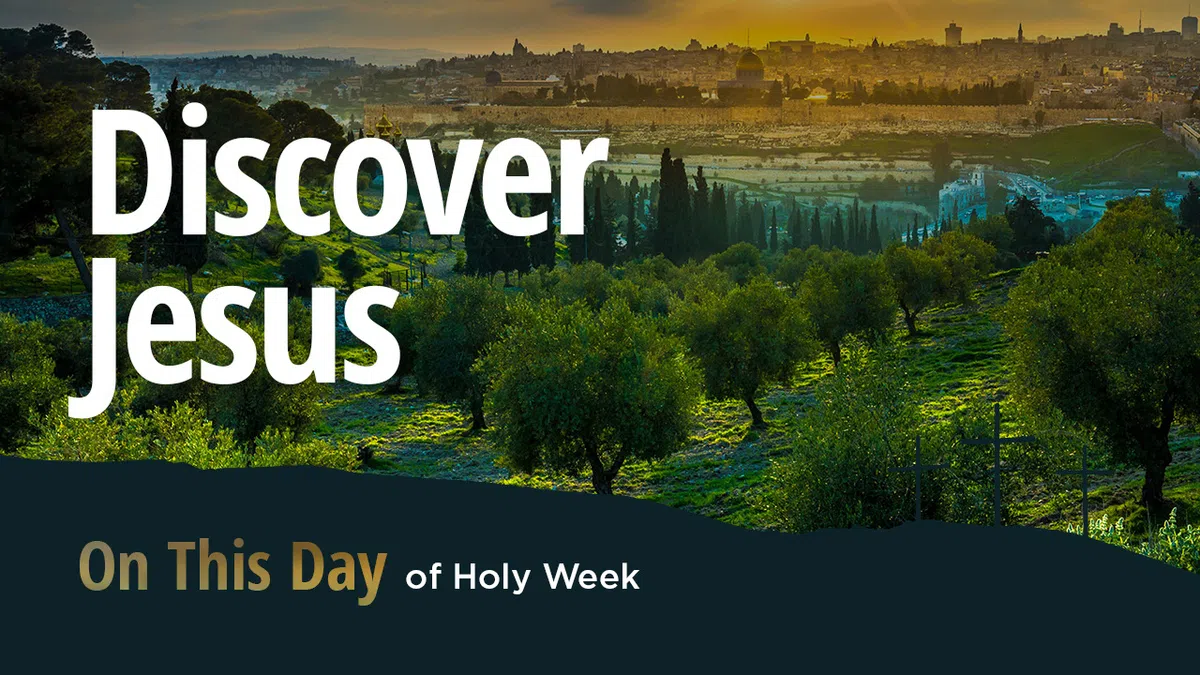
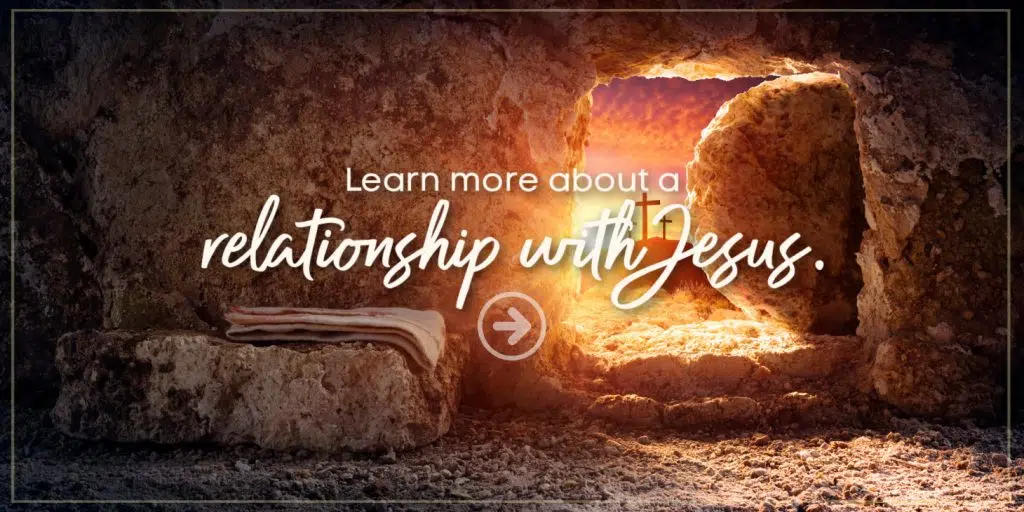







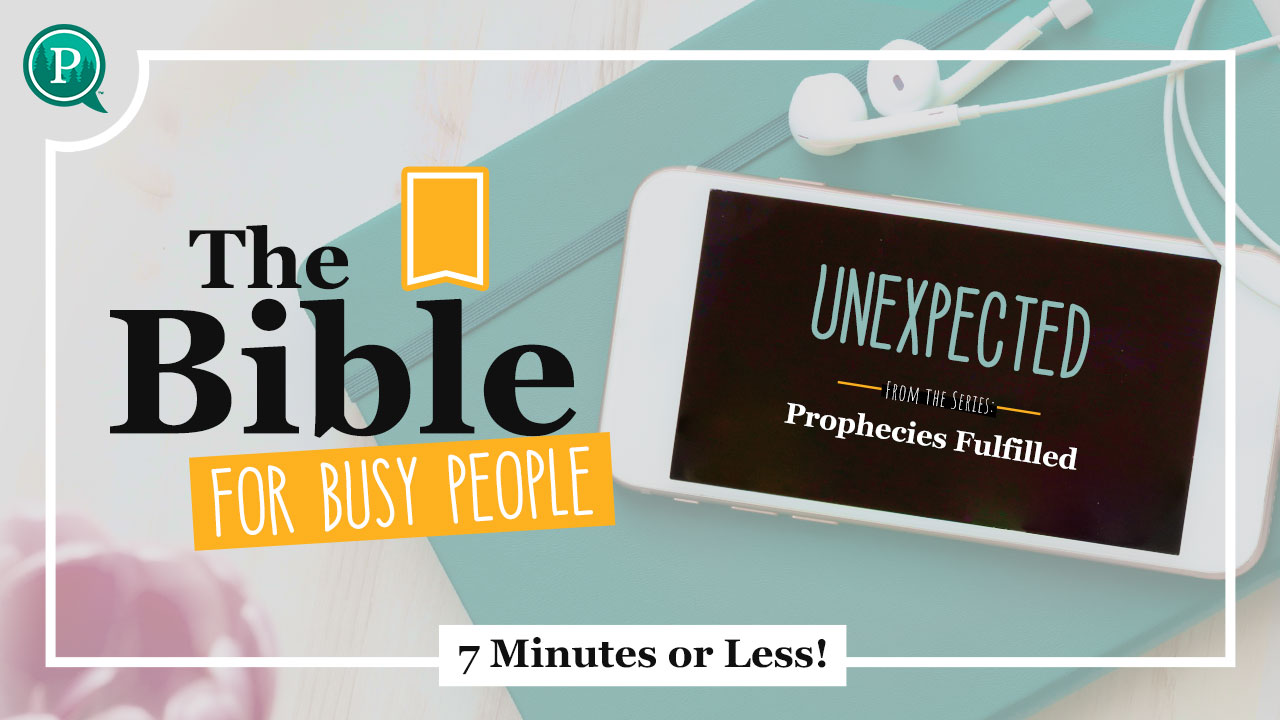
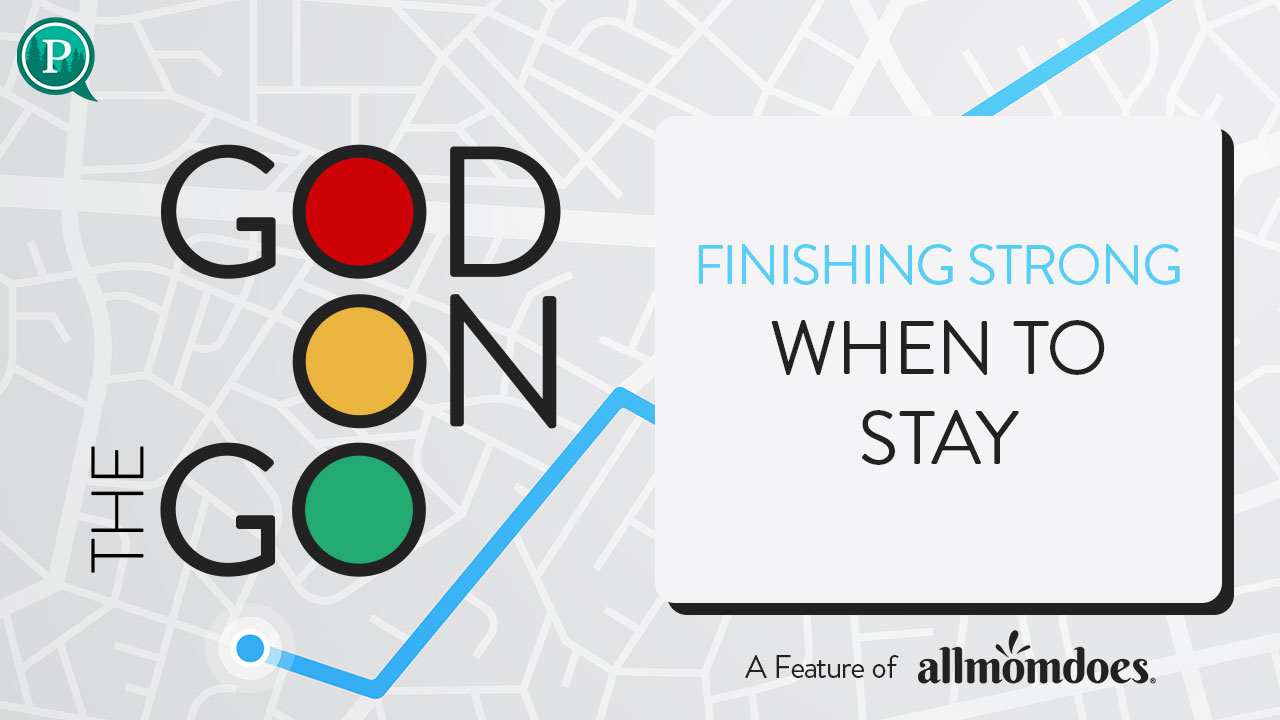
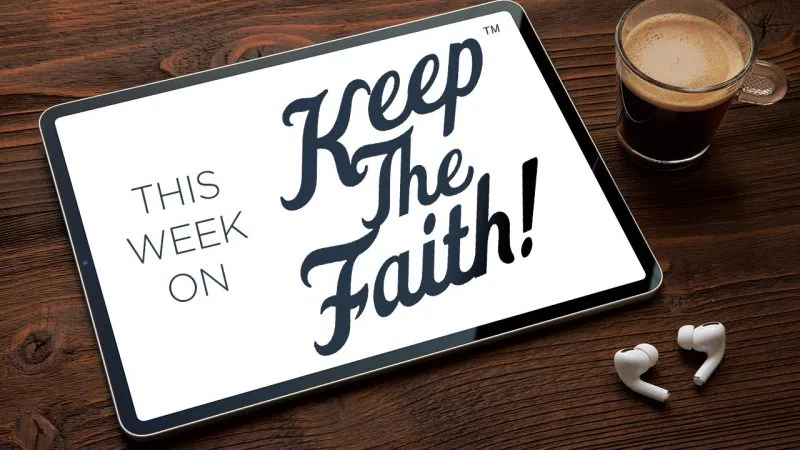






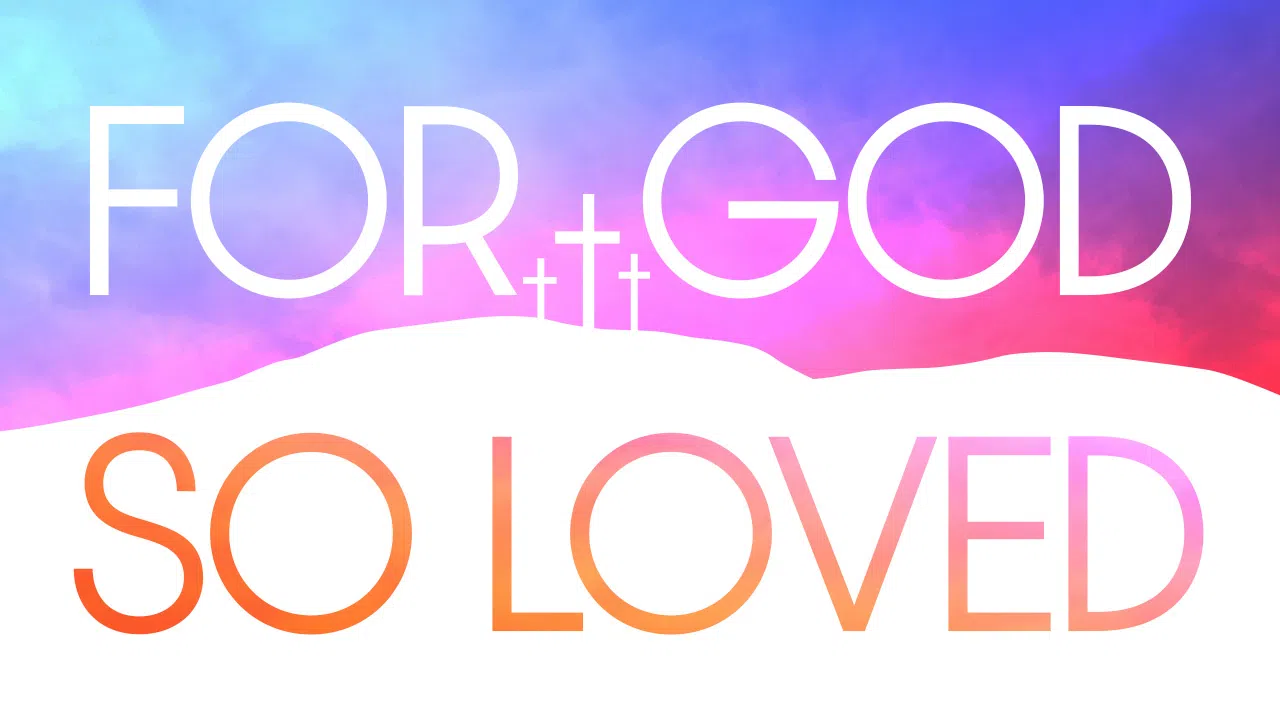

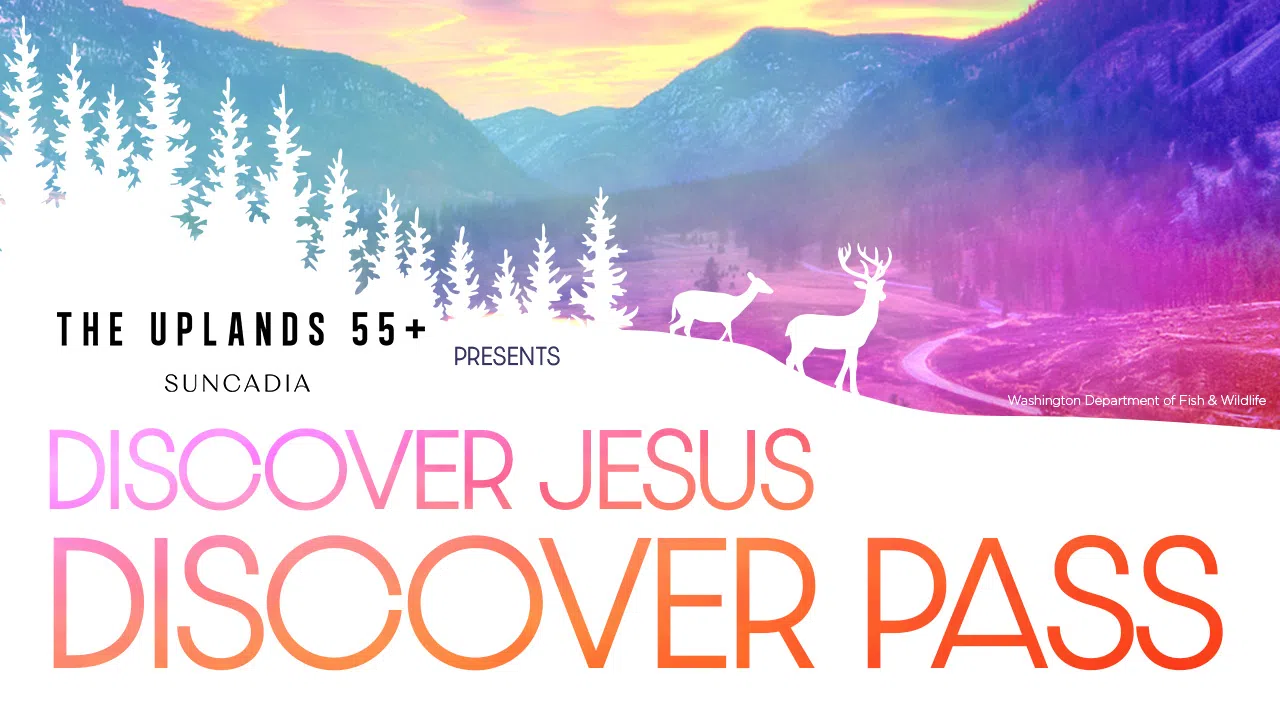
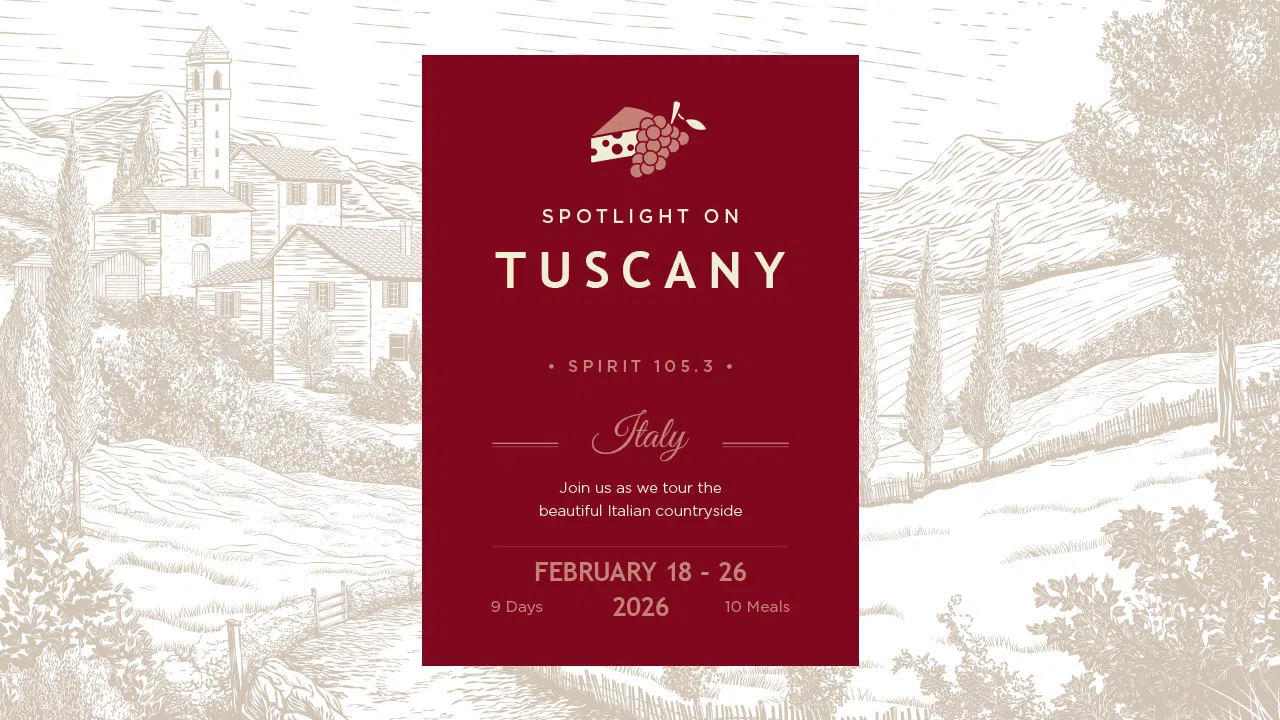

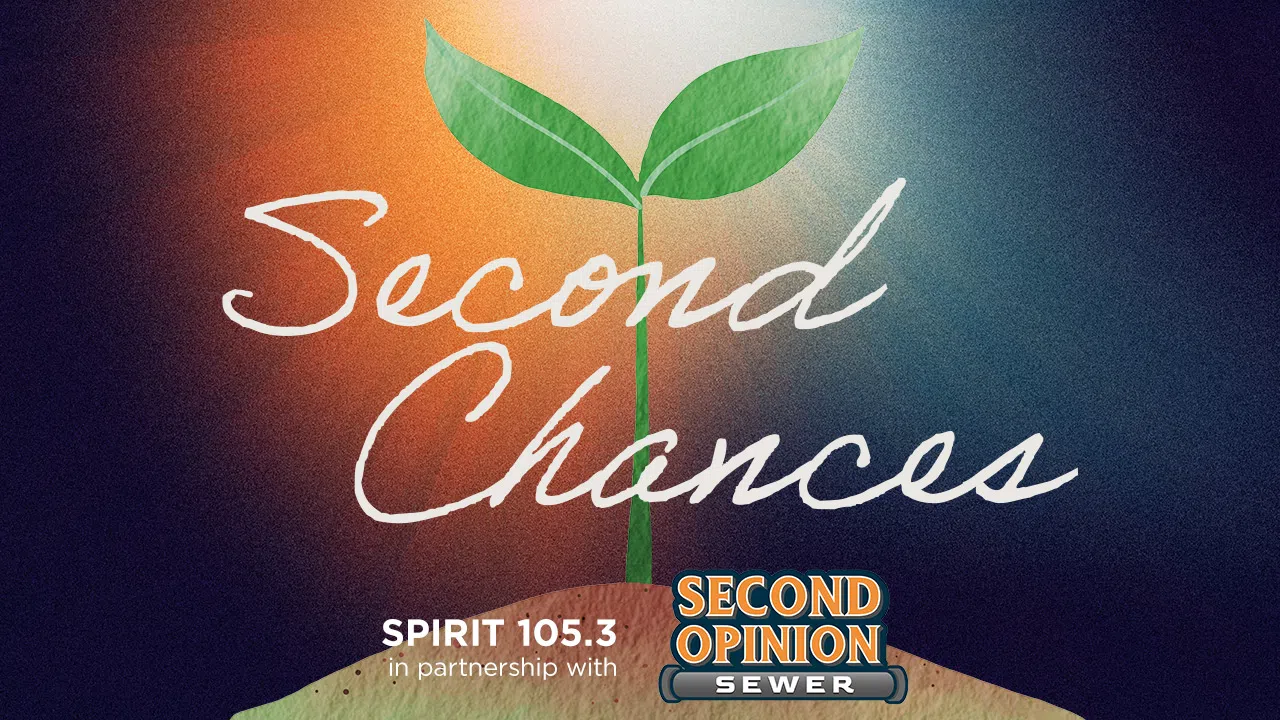


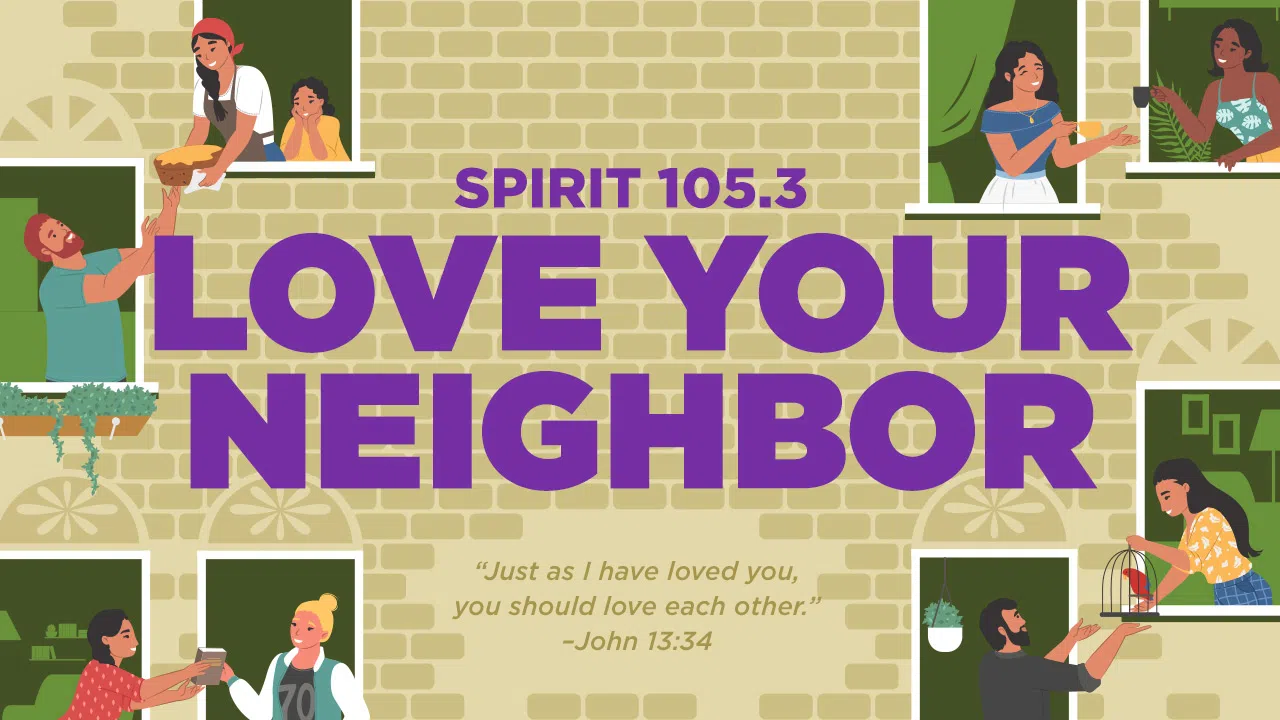
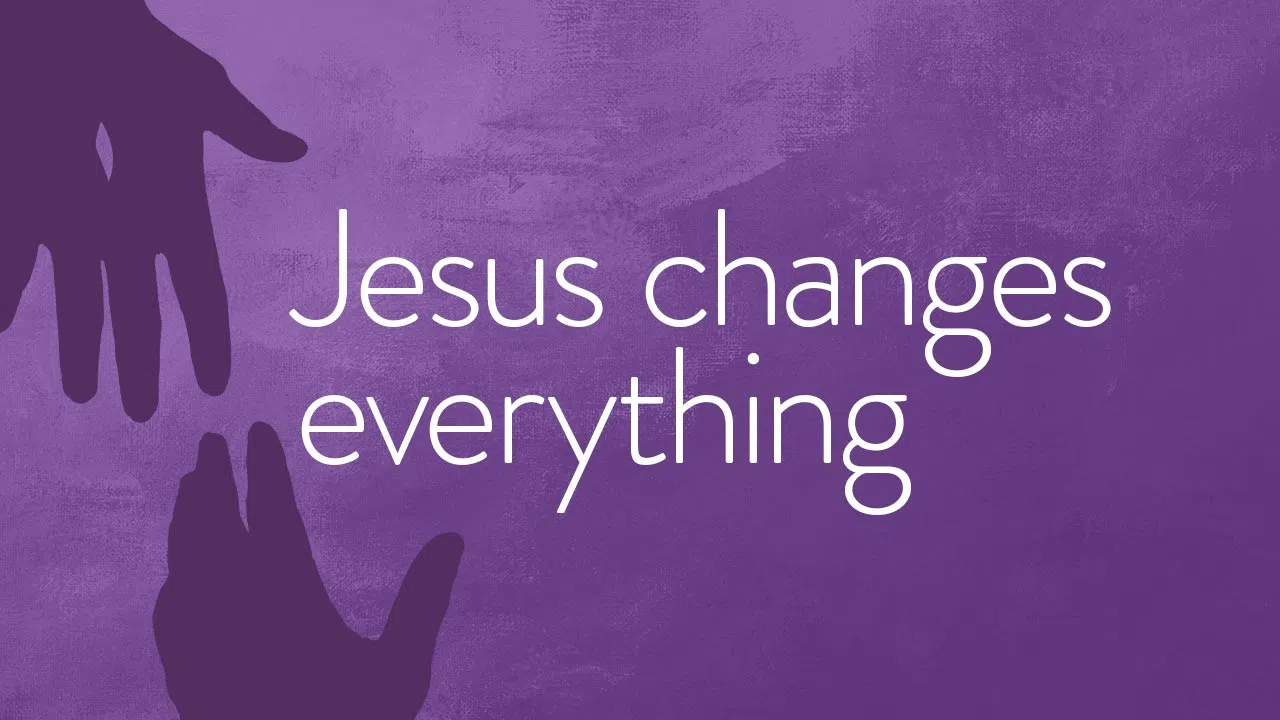
Comments